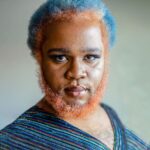Home › Resources
Access the KnowledgeWorks library of resources, which includes thought leadership, publications, stories from our partners in the field and more.
Sign up for our weekly newsletter.
Consider the countless opportunities for AI to enhance educational opportunities but also the ethics of using it as a solution…

With the support of their teacher, kindergarteners in this Arizona elementary school understand the standards they’re working through.

District leaders share insights into the best ways to scale personalized, competency-based learning.

Artifacts from the future can help learning communities support their vision for the future.

Five pieces of advice designed to help others overcome the potential hurdles faced during the first year or two of…
Five ways to spread personalized learning beyond your core team and create buy-in for learner-centered practices.

Reconsidering the master schedule as an element in how you realize your vision for teaching and learning

As students become more active in their own educational experience, here’s guidance on ways to support efforts in elevating student…
How one small thing, like a logo, can make youth feel empowered to be a part of education changemaking

Authentic student voice and choice is about helping students understand themselves as learners.

Words do matter, and creating a shared vocabulary is part of the process of shifting mindsets and practices.

What’s the difference between traditional and student-centered classroom management and why does it matter?
A future of learning where students of all races and ethnicities, incomes and identities pursue the kinds of learning experiences that enable them to uncover their passions and thrive in an evolving world.
Subscribe to receive email updates including expert insights, success stories and resources.